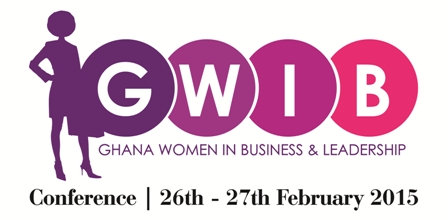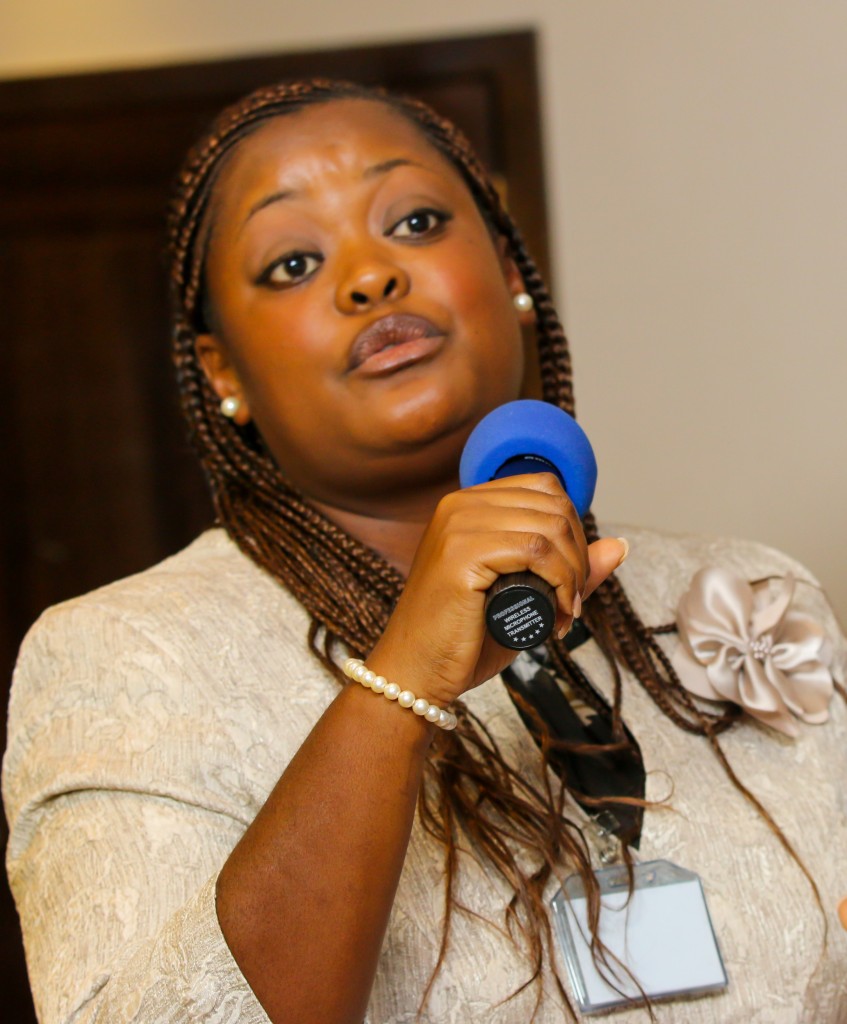Leading Ghana Women in Business & Leadership
 The largest gathering of influential Ghanaian women in entrepreneurship occurred at the inaugural Ghana Women in Business and Leadership Conference. Anita Wiafe-Asinor helped make it happen.
The largest gathering of influential Ghanaian women in entrepreneurship occurred at the inaugural Ghana Women in Business and Leadership Conference. Anita Wiafe-Asinor helped make it happen.
Anita is not only the Managing Director of Occupational Management Limited (OML) Africa, she is also the founder of the women’s business network Ghana Women in Business (GWIB).
Born in Ghana, Anita lived most of her life in the UK. Her goal was to learn as much as possible in order to bring her experience and business back to Ghana. She began her career in the National Health Service in the UK’s non-profit sector and worked under several great women leaders there who inspired her to build a strong career in strategic human resource management.
After having her daughter and trying to maintain long hours in corporate work, Anita decided to look into consulting as a HR specialist for better work-life balance. “After a lot of ups and downs, emotional roller coasters and disappointments, I took a bold decision to start up my own Human Resource Management Consultancy in the UK in 2007, focusing on HR services for the not-for-profit sector.”
 Working through the challenges of running a business as a single mom, Anita realized her her passion for entrepreneurial development and became very interested in African labor issues. Exploring opportunities in Ghana in 2008, Anita realized that “when it came to business, women were the majority, but they were ignored. It was at this point that I realized just how much women and children issues in Africa bothered me. I found my passion growing, but knowing myself, I did not want to rush impulsive action.”
Working through the challenges of running a business as a single mom, Anita realized her her passion for entrepreneurial development and became very interested in African labor issues. Exploring opportunities in Ghana in 2008, Anita realized that “when it came to business, women were the majority, but they were ignored. It was at this point that I realized just how much women and children issues in Africa bothered me. I found my passion growing, but knowing myself, I did not want to rush impulsive action.”
“Through the consultancy, working with SME’s and other institutions, I got to understand some of the challenges women faced in business and leadership, in Ghana and in Africa. I was facing them myself.”
“I found that women were not uniting in business or in our efforts – this is hindering us as Ghanaian women from reaching our fullest potential.”
“This is one of the main reasons that lead to the birth of GWIB; after all these years, I wanted to create a platform where quite simply, women supported each other through networking, knowledge-sharing and doing business together.” Women at all stages of business are connecting to GWIB. Spanning ages 30-60, these women are starting out, growing, or running successful businesses and want to be a part of a network that supports businesswomen and develops strong women leaders.
With GWIB, Anita firmly believes in the importance of connecting women with local, culturally relevant training and network, rather than importing Western business advice. She explained that often, the resources and infrastructure are not in place for Western business ideas to function properly. Though advice or training may be theoretically sound, “it often has to be adjusted to suit local content, culture, and environment in order for it to fully work or be applied.”
The challenges women in Ghana face are similar to those of women in other growth economies. “At home they are trying to balance their homes and their businesses, following their dreams, living up to the expectation of the society. In business, they face challenges to access funds, training, and advocacy opportunities.”
Anita says women in Ghana also face opposition from the cultural beliefs that hinder many Ghanaian women from working outside the home. This is a critical time for women to work, however, as “some are also facing serious financial hardships that affect their families and their only way out is through entrepreneurship.”
As long as Ghana has women willing to fight against the odds to achieve, there is hope.
“What makes me most proud is that against all the challenges to doing business in Ghana, so many women persevere and don’t give up. You speak to women and they share their vision of reaching the world with their business. They tell you of the long hours, disappointments and hopelessness they feel at times when things just don’t go right. But they are determined because they want to make a change for their family, community and nation through what they do. Some are using their own money to address social issues in their communities. Some are supporting initiatives to improve the lives of women and children. As long as Ghana has women willing to fight against the odds to achieve success, there is hope. I am hopeful that a Ghanaian woman in business will make the top list for influential women in Africa very soon.”
Follow GWIB on Facebook.